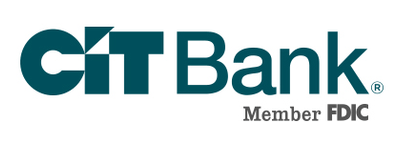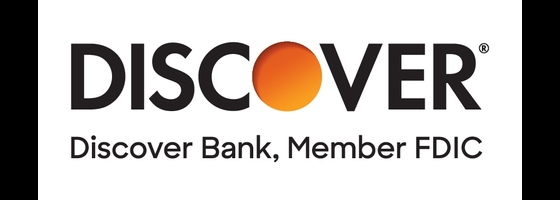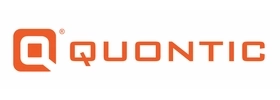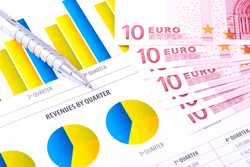How Many Bank Accounts Should You Have?


Our evaluations and opinions are not influenced by our advertising relationships, but we may earn a commission from our partners’ links. This content is created by TIME Stamped, under TIME’s direction and produced in accordance with TIME’s editorial guidelines and overseen by TIME’s editorial staff. Learn more about it.
Different types of bank accounts serve different purposes and needs. The number of bank accounts you should have differs for everyone, and what works for someone else may not work for you.
Having multiple bank accounts often allows you to perform tasks unavailable with other accounts. It also opens access to additional banking benefits, such as separating your savings by goal or purpose, earning interest, or automatic savings and budgeting features. Having multiple accounts means more to manage, so finding the right mix of bank accounts is vital for staying organized.
There are several reasons opening multiple bank accounts could make sense for you, including the following:
Having multiple accounts allows you to separate money for expenses from savings. Having separate accounts for different categories can simplify expense tracking to see whether you're staying on budget or need to make adjustments. You can also track progress towards savings goals better.
Banks have come a long way in providing the best features, tools, and perks. Many accounts available now are multifunctional, but having multiple bank accounts can still unlock access to valuable benefits. A checking account can give you access to ATMs, a checkbook and bill-paying features. Savings accounts earn interest, which can help you reach savings goals quicker. High-yield savings accounts, money market accounts and certificates of deposit (CDs) open the door to even higher annual percentage yields (APYs).
Having multiple bank accounts can help separate finances when needed. Couples might want a joint bank account for funds managed together and separate accounts for personal funds. If you're a small business owner, having a different account for your business finances makes it easier for bookkeeping and tax purposes.
Some banks try to attract new customers by offering cash bonuses. Typically, you can earn these bonuses by opening a new account and meeting specific offer requirements like setting up direct deposit, maintaining a minimum balance, and other transactional criteria.
Some banks may impose restrictions or transaction limitations on certain types of accounts. Having multiple accounts gives you the flexibility to avoid limits as needed.
There's no one correct answer, but it's usually best to start with at least two accounts—a checking account and a savings account. This gives you an everyday banking account for bills and other expenses and another for saving.
Your bank account journey doesn't need to end there. There are checking and savings accounts available with varying features and functions. Other bank accounts may provide higher interest rates or specialized features.
A checking account is a deposit account for everyday expenses. It's meant for frequent transactions, such as deposits and withdrawals. Traditionally, checking accounts are used to pay bills, shop, and access cash quickly.
Having at least one checking account makes sense, but depending on your needs, you may want or need more than one. For example, First Citizen Bank has a free checking account for basic needs, but also offers two levels of upgrades to interest-bearing accounts with extra features if you want to earn interest on an everyday spending account. Quontic Bank offers checking accounts that earn high-yield interest or cash back rewards. Having more than one checking account allows you to take advantage of these unique benefits while keeping one account for everyday use.
Multiple checking accounts let you split the money for bills from discretionary spending. Opening a business checking account is a great way to separate funds from side projects or a small business. If you're a parent, Banks including Chase offer accountholders the ability to open checking accounts for children and teens.
Savings accounts might be where having multiple accounts makes the most sense. Having multiple accounts lets you separate your savings by specific goals. You could keep all of your savings in one pot and try to remember which funds are earmarked for which goal, but it's much easier if you separate them. Multiple savings accounts are great for:
If you have a savings account at your local bank, chances are it's earning minimal interest closer to the national average. You can boost your savings by pairing your basic savings account with a high-yield savings account from an online bank. If you're comfortable banking from your computer or phone, these online banks and others offer competitive APYs on high-yield savings accounts:
 |  |  | |
|---|---|---|---|
| Savings account | CIT Bank Platinum Savings | Discover® Online Savings Account | Live Oak Personal Savings |
| APY* | 4.35% | 3.75% | 4.20% |
| Min. deposit | $100 | $0 | $0 |
| Monthly fee | $0 | $0 | $0 |
Consider your savings goals to decide if you should add more than one savings account to your personal banking plan.
Checking and saving accounts are the bread and butter of banking but aren't the only available options. Banks offer other accounts that function differently than standard accounts. Consider the following bank account offerings to pair with—or replace—your current checking and savings accounts.
Money market accounts (MMAs) have become more common. MMAs are hybrid accounts that combine a checking account's convenience with a savings account's earning power. Features vary among banks, but MMAs often have common checking features like check-writing privileges and debit or ATM cards. Money market accounts often have higher opening deposit requirements than other accounts. Check the deposit and other requirements to ensure it's a good fit before choosing an account.
Certificates of deposits, or CDs, are timed deposit accounts. Banks and credit unions typically offer higher rates on CDs in exchange for keeping funds untouched in your account for a predetermined period of time. CDs offer predictable returns with fixed interest rates and specific CD terms.
Online banks, such as CIT Bank and Quontic Bank, offer CD terms ranging from six months to five years that earn high-yield interest. Banks typically charge penalties for withdrawing funds early before the CD matures, so ensure you won't need access to funds for the specified term before depositing them into a CD account.
 |  |  | |
|---|---|---|---|
| APY* | Up to 5.00% | Up to 4.10% | Up to 4.25% |
| Min. deposit | $1,000 | None | $500 |
| Monthly fee | $0 | $0 | Additional terms, conditions, fees & exclusions may apply |
| Term | 6 months to 5 years | 3 months to 10 years | 6 months to 5 years |
| Pros | Cons |
|---|---|
Separate funds | More accounts to manage |
Track multiple savings goals | More minimum balances to maintain |
Take advantage of other features and perks | More potential fees |
Earn bank bonuses | Multiple bank logins to remember |
Earn higher interest rates |
Juggling multiple accounts isn't easy, and you could mix up accounts on transactions if you're not careful. Double-check that you’re using the correct account or debit card before making purchases or transferring funds.
Whether you have one or multiple savings accounts, invest in your future by setting and saving toward short-term and long-term life goals. Protect yourself by building an emergency fund with three to six months' living expenses. Consider accounts with automatic savings features to make weekly or monthly savings automatic.
Link your bank accounts to make it easier to access and move funds as needed.
Some banks charge monthly service fees for managing your accounts. Look for bank accounts that have no fees or offer realistic ways to waive the fee each month.
Opening accounts at multiple banks is fine, especially if you like a specific account elsewhere or the bank doesn't offer everything you need. Remember that each bank you use means another account login to remember and another banking app to download and use.
Choose the number and types of bank accounts you open based on your financial needs and goals. What works best for someone else may not be ideal in your situation. Start with an everyday account and a savings vehicle and build out as needed.
Compare rates, fees, requirements, features and customer-service options to find the right accounts for your personal banking system.
Bank accounts have no bearing on your credit or credit score, and typically bank transactions do not show up on your credit report. Bank accounts show up on ChexSystems reports, and negative marks on your accounts could affect your ability to open other bank accounts in the future.
Small business owners should have at least two business bank accounts—a business checking account for business expenses and spending and a savings account to protect their business and save toward future business goals.
There's no specific number of bank accounts that is inherently good or bad. Opening multiple accounts allows you to meet varied banking needs and access different features and functions. On the other hand, having multiple accounts can potentially increase how many bank fees you pay and may require more time to manage your accounts.
The information presented here is created by TIME Stamped and overseen by TIME editorial staff. To learn more, see our About Us page.



